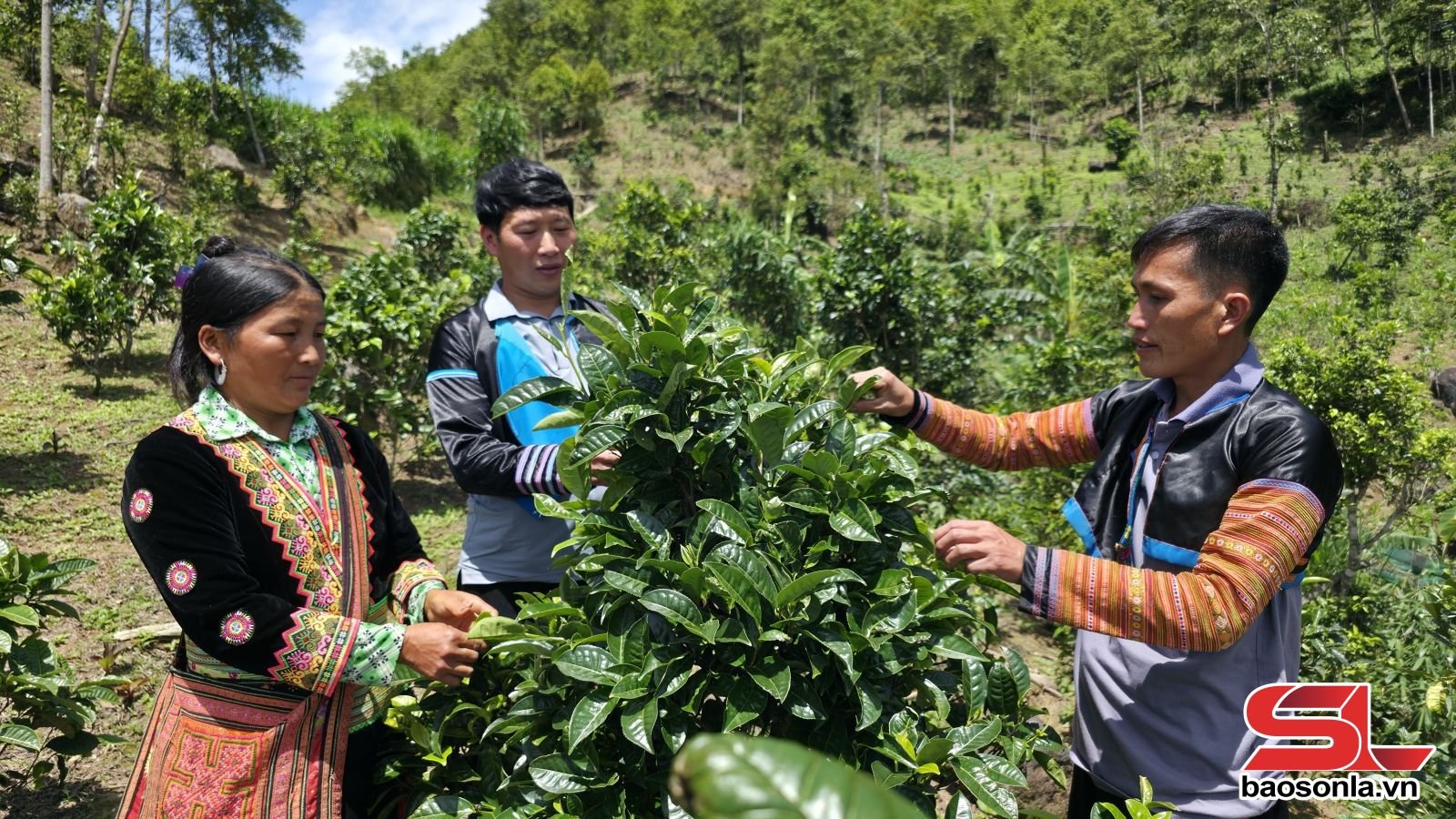
Preserving the ancient spirit of tea in the middle of the great forest
Currently, Bac Yen district has over 420 hectares of Shan Tuyet tea being harvested, planted in Ta Xua, Hang Dong and Lang Cheu communes. From 2016 to now, the district People's Committee has supported 535 households in the communes to plant new Shan Tuyet tea with an area of over 316 hectares.
At an average altitude of 1,500 - 2,000 m above sea level, ancient Shan Tuyet tea trees are concentrated in Ta Xua, Hang Dong, and Lang Cheu communes, standing tall amidst harsh nature, still standing tall in the cold and fog. The soil and climate create a special and delicious tea flavor that cannot be found anywhere else. Shan Tuyet Bac Yen tea has become a famous specialty, carrying the hope of eliminating hunger and reducing poverty, developing with tourism and the cultural identity of the highlands.
The ancient tea trees here do not grow in rows, but are scattered in the natural forest, with trees up to 5 m high, trunk diameter up to 40 cm, and age from 100 to 200 years. Typically, the ancient tea trees in Chong Tra village, Hang Dong commune, growing precariously on the top of U Bo mountain, where you have to walk all morning to reach, are "living treasures" of the mountains and forests. Notably, in 2019, 200 tea trees in Be village, Ta Xua commune, were recognized as Vietnamese heritage trees, becoming symbols of an entire ancient tea region.
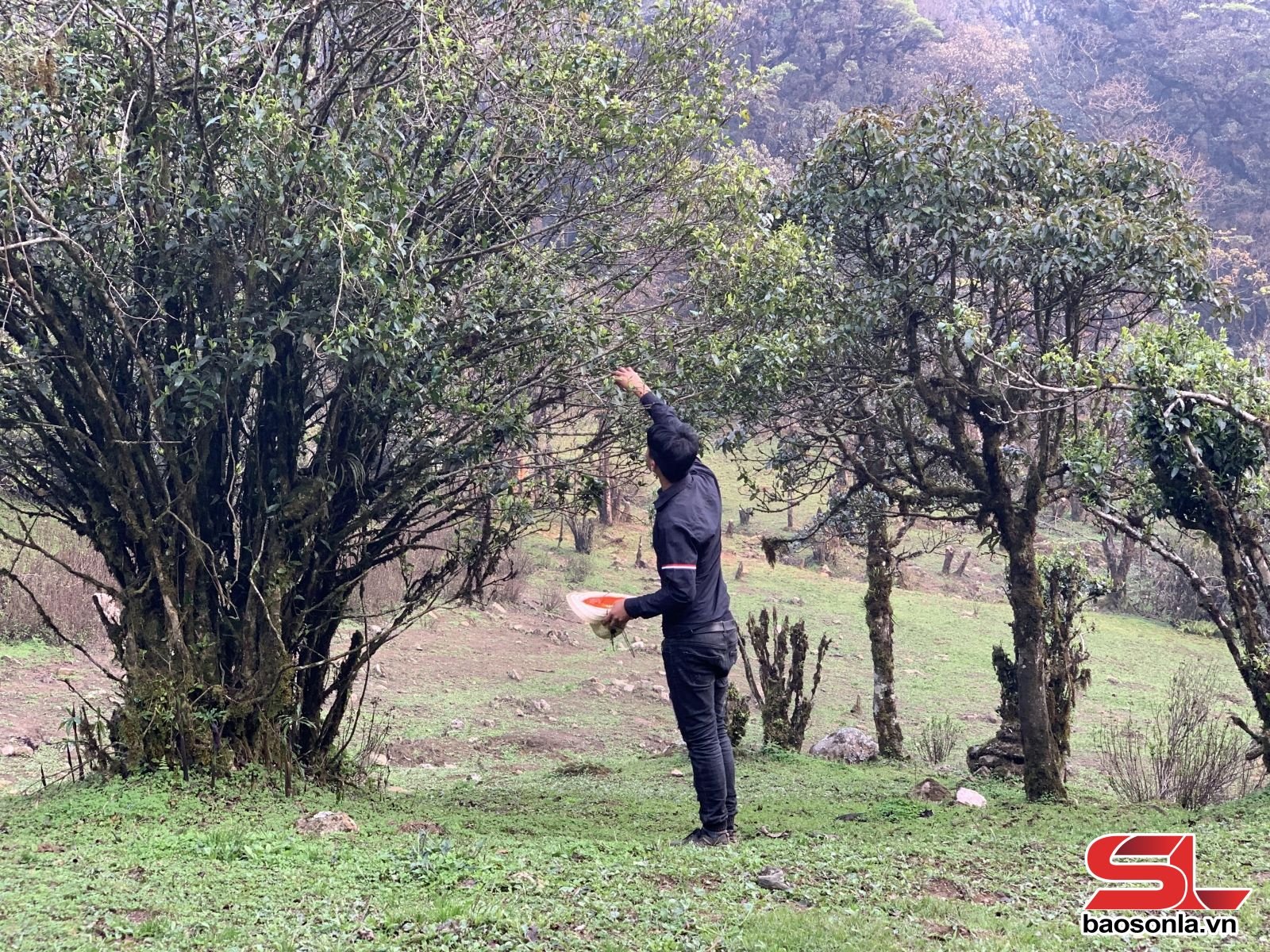
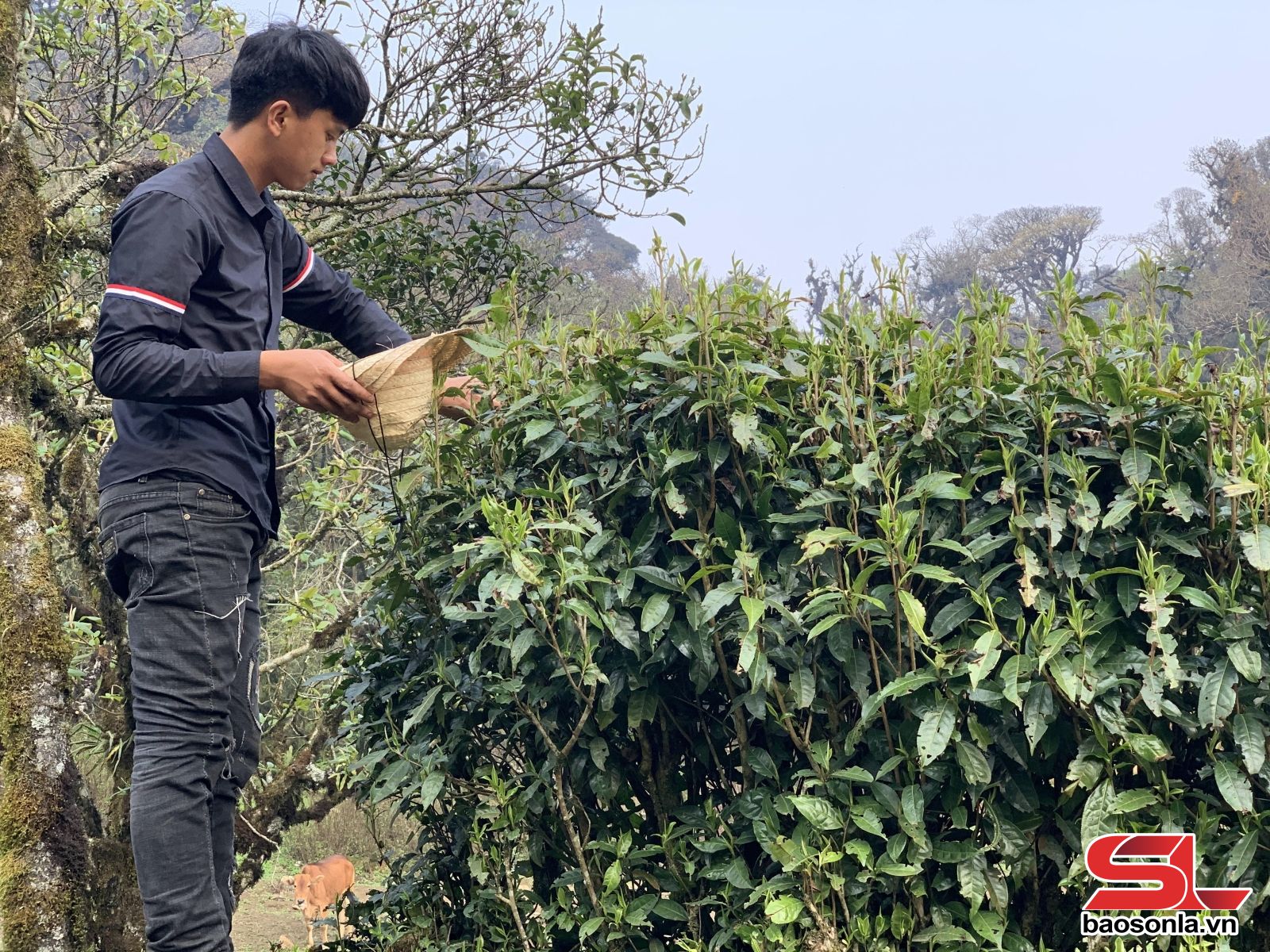
Mr. Mua A Senh in Be village, Ta Xua commune has 30 ancient tea trees over 100 years old. Mr. Senh said: This tea does not belong to my family alone, but to the forest, to the whole village. The ancient tea has been recognized as a heritage tree, I am very honored and will preserve it even better.
To make a kilo of premium Bac Yen brand Shan Tuyet tea, it must go through at least three stages, including: Harvesting with the right technique, elaborate processing and strict preservation. Each stage requires meticulousness, experience and dedication of the tea maker. Harvesting must be done early in the morning, when the dew is still on the buds. Only choose young buds or 1 bud 1 leaf, or even only 1 bud to ensure better quality tea. Absolutely do not pick too much to avoid damaging the branches. After that, the tea is roasted by hand or mini roaster, kneaded carefully using traditional methods to keep the white snow on the buds, then dried naturally.
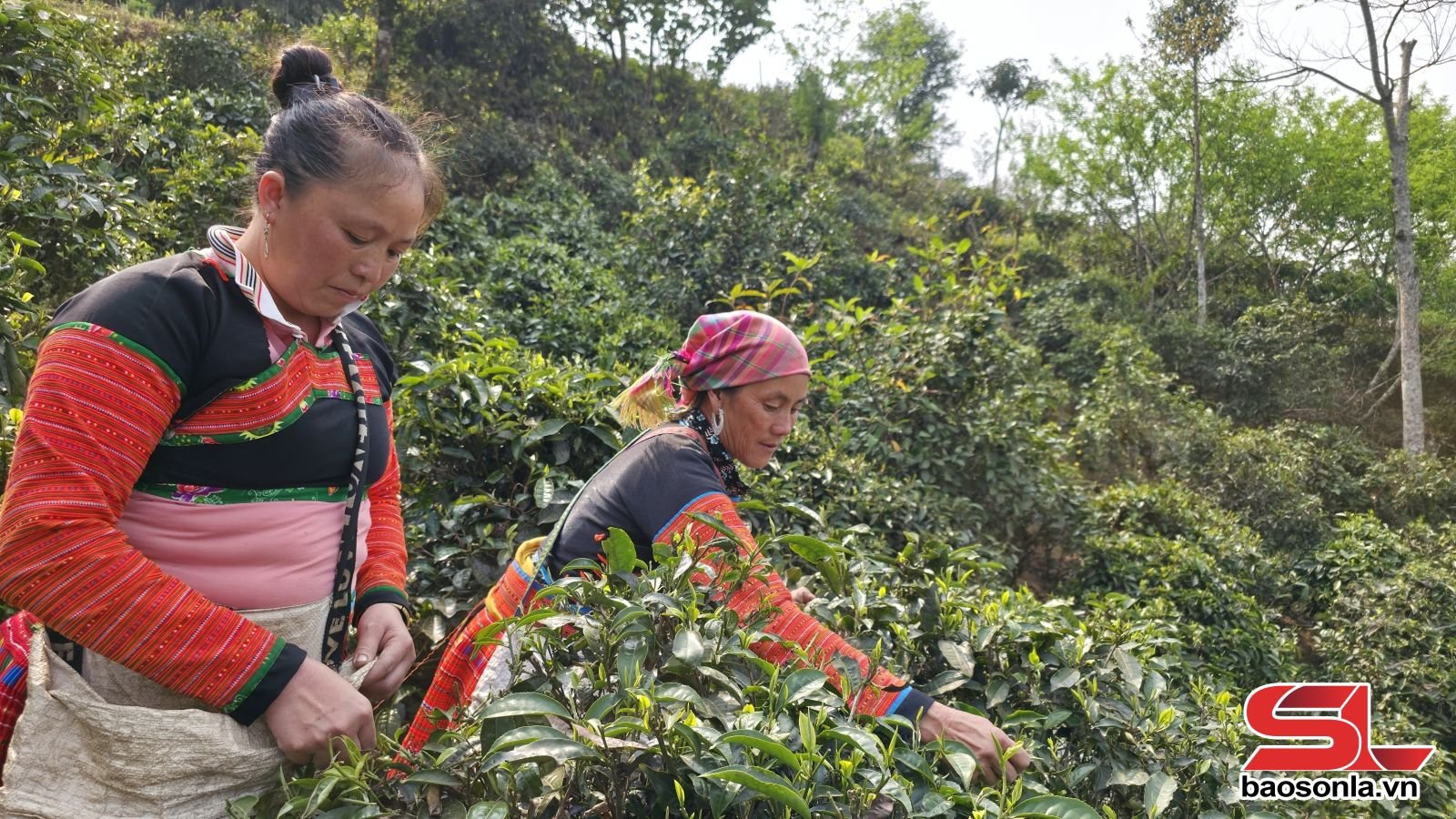
Mr. Mua A Ho, Chairman of Ta Xua Commune People's Committee, said: The whole commune has 341 households growing tea, with an area of 285 hectares, of which 194 hectares are harvested. Ta Xua tea is mainly Shan Tuyet. In 2024, the tea was granted the Ta Xua Bac Yen Tea certification mark. People are regularly trained in techniques, good environmental protection, no deforestation for tea planting or waste discharge. Some effective community tourism models associated with tea, such as: Homestay A Chau, Thao Coffee (Ta Xua village) and House of H'Mong Shan Tuyet (Be village), combine experiences and promote tea products.
Mr. Hang A Thong, Party cell secretary and head of Lang Sang village, Hang Dong commune, has been involved with tea plants for many years. Mr. Thong said: Each batch of tea takes a whole morning from roasting to rolling. The tea is slightly astringent, has a sweet taste on the tip of the tongue and a slight smoky smell, which is standard. Those who are not used to it cannot stand the heat, but once they get used to it, they will love the aroma of the tea.
Fragrant Ta Xua tea
From a place where tea was just a family drink, today Shan Tuyet tea has become a key commodity, contributing to poverty reduction for more than 520 tea-growing households in the area. The price of dry tea ranges from 400,000 - 500,000 VND/kg, 8-10 times higher than regular tea. Some special tea products can cost up to several million VND/kg, depending on the season. The average income is 100 million VND/ha/year, with a profit of about 70 million VND. From 2021 to now, Ta Xua commune alone has had 68 households escape poverty thanks to tea.
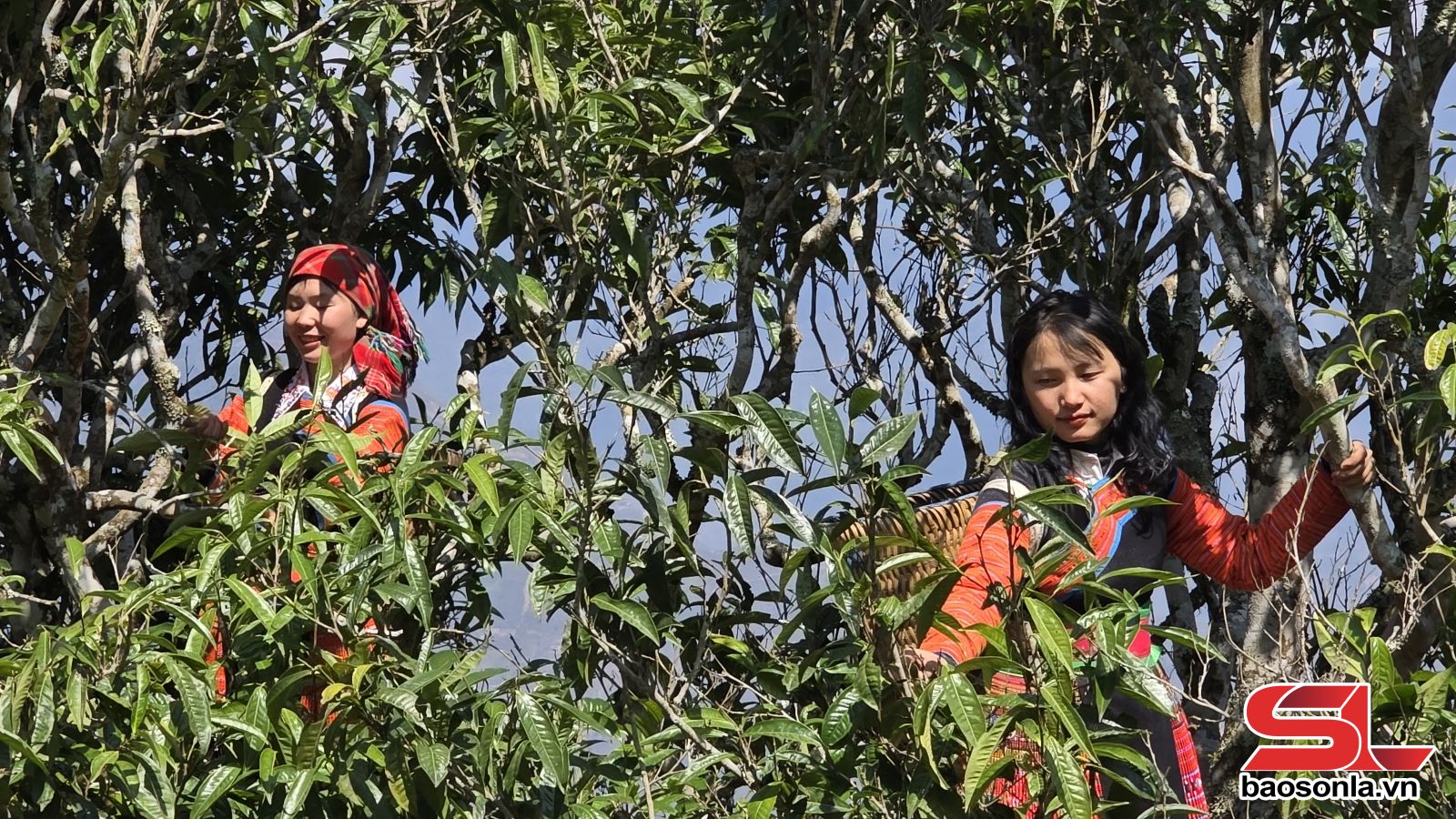
Ms. Duong Thi Lan Huong, Head of the Department of Agriculture and Environment of Bac Yen district, said: In 2021, Tay Bac Tea and Specialties Company Limited (TAFOOD) invested in building a new tea factory in Be village, Ta Xua commune. The total area used for production and product introduction is 1,000 m2 , the experience and accommodation area is 1,000 m2 . The processing capacity is 7-10 tons of fresh tea buds/day with an exploited area of 108 hectares. Creating regular jobs for 16 workers, including 10 ethnic minorities. Along with that, the district supports the establishment of tea cooperatives, traceability, brand building, and development of OCOP products. By 2024, the district has had 5 tea products meeting OCOP standards from 3 to 4 stars.
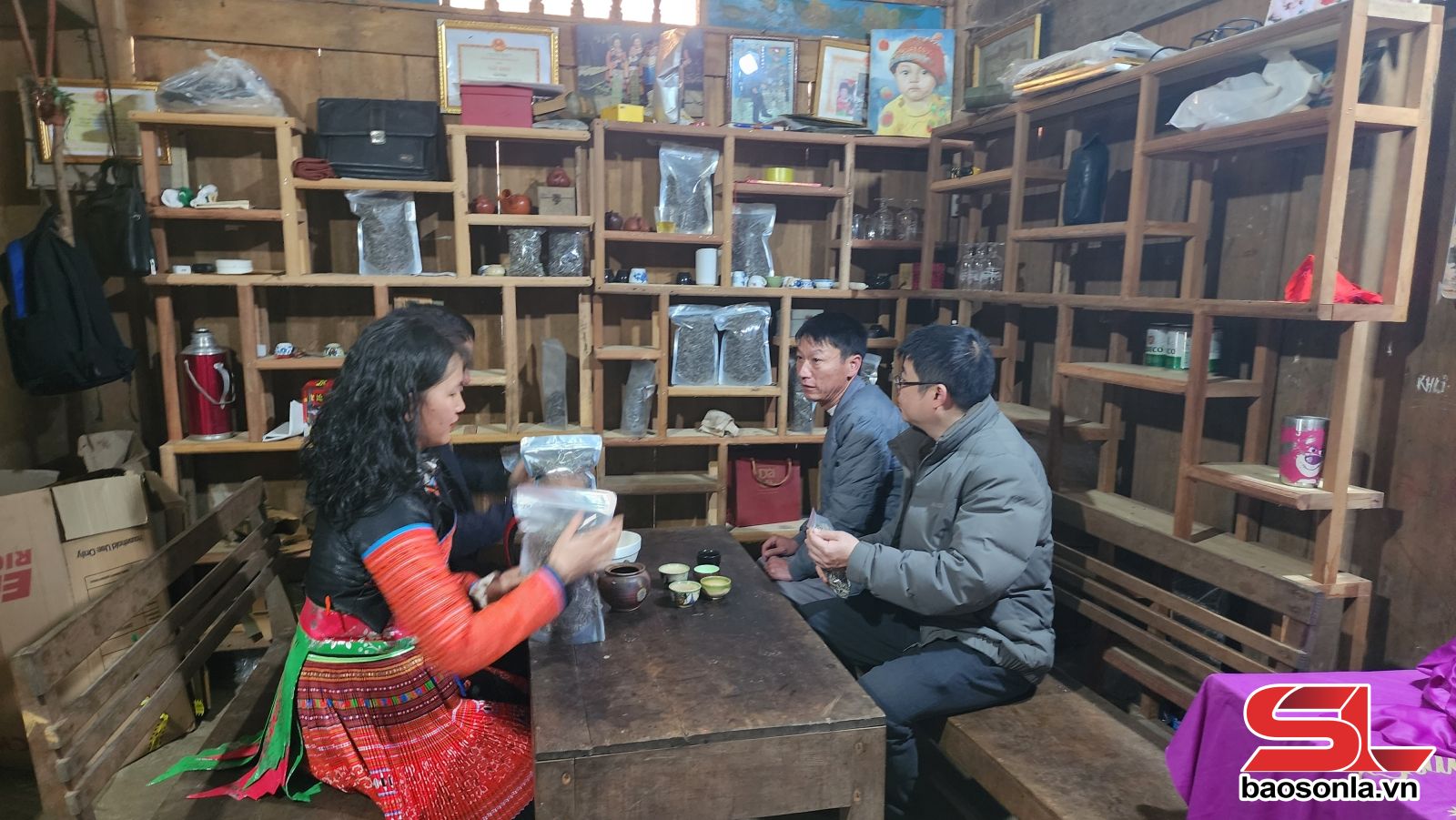
Mr. Mua A Lenh, Director of the Agricultural and Ethnic Culture Preservation Cooperative - Pla, Ta Xua commune, said: 17 households in Ta Xua village have joined together to establish a cooperative, growing more than 18 hectares of organic tea. The members still maintain the craft of drying tea by hand, creating a unique flavor. The traditional ancient Suong Tuyet Tea product of the cooperative has achieved 3-star OCOP and is always "sold out".
Shan Tuyet tea has now gone beyond the village, appearing in the capital Hanoi , Ho Chi Minh City and gradually appearing on e-commerce platforms, opening the door to integration for special agricultural products of the highlands.
Preserving the forest – Preserving the tea – Preserving the identity
In addition to its economic value, Shan Tuyet tea is also associated with spiritual culture and environmental responsibility. Ancient tea only thrives in primary forests, meaning that preserving tea is also preserving forests. Thanks to the policy of paying for forest environmental services, people are more motivated to protect forests and trees. Mr. Hang A Thong, Party cell secretary and head of Lang Sang village, Hang Dong commune, shared: If you grow tea and destroy the forest, you will lose everything. Now every family keeps the trees, no one cuts them down. Tea trees are as precious as buffaloes and cows.
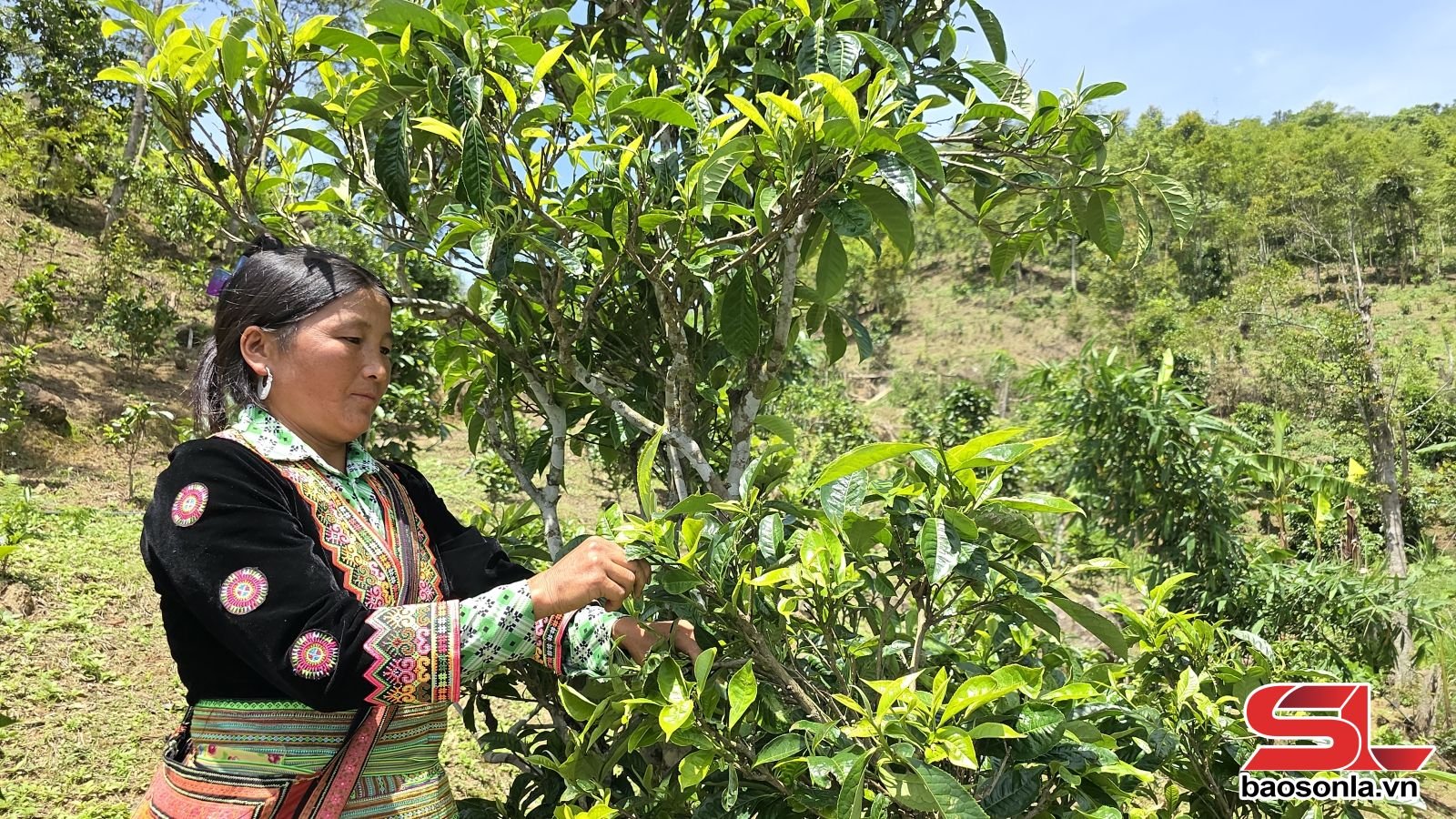
The intersection of economics - ecology - culture is making Shan Tuyet Bac Yen tea a unique "3 in 1" product that can be exploited long-term and sustainably if developed in the right direction.
Mr. Mua A Ho, Chairman of Ta Xua Commune People's Committee, added: In recent years, thanks to the propaganda and technical guidance of all levels, along with the development of science, technology and tourism, the consumption of tea products has become increasingly favorable. Ancient tea trees bring stable income, helping people raise awareness, focus on caring for and improving tea gardens to increase economic value.
In Ta Xua commune, the authorities have coordinated with the Forest Protection Department and the District Agricultural Service Center to promote propaganda and mobilize people to protect forests and collect used pesticide packaging. There has been no deforestation to grow tea or indiscriminate discharge of waste causing environmental pollution.
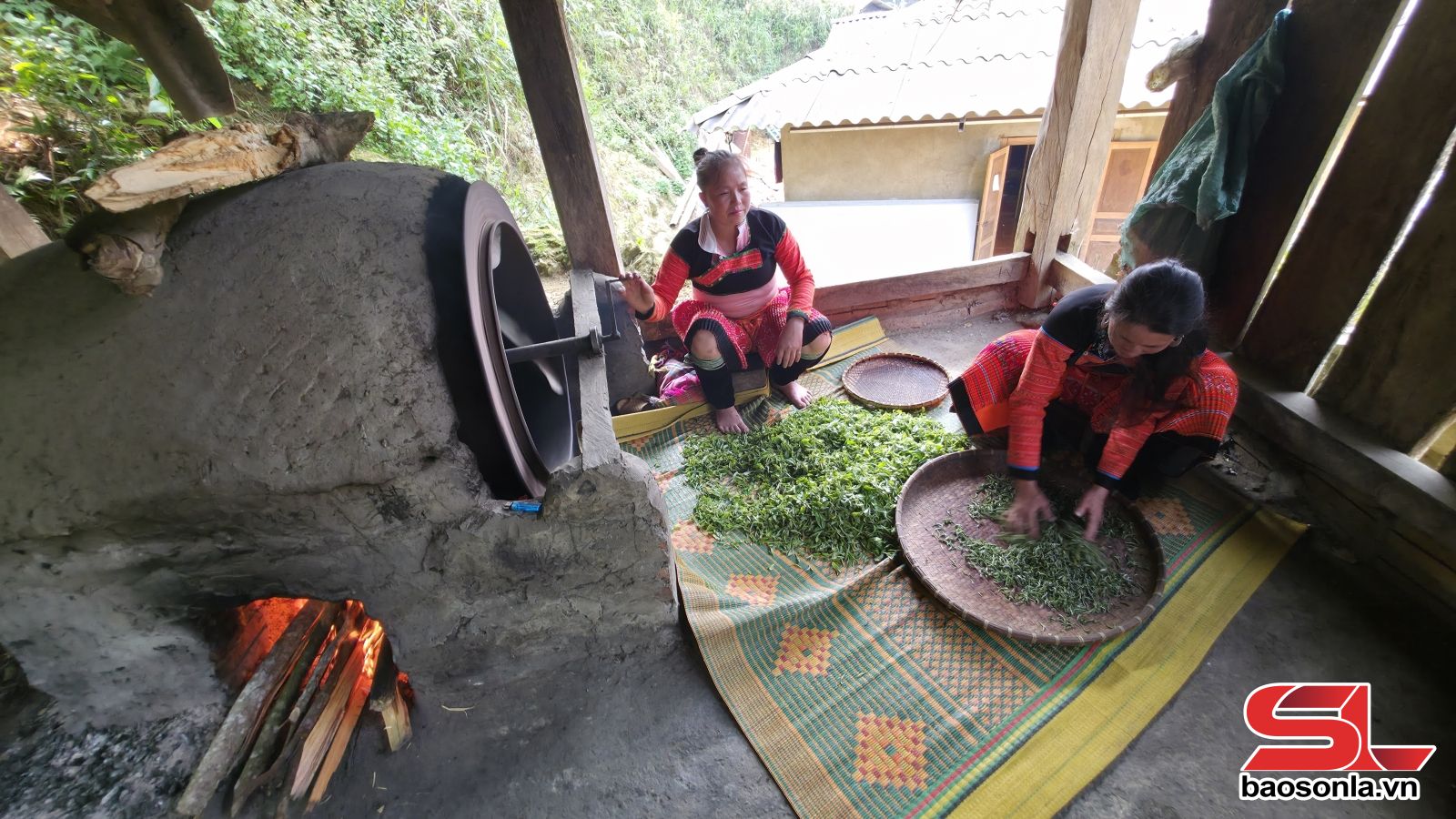
Developing Shan Tuyet Bac Yen tea still faces challenges, as many villages do not pay much attention to the care and harvesting techniques. Although the market is open, it is not uniform and competitiveness is still low. Bac Yen district has implemented many solutions, such as: Planning ancient tea areas associated with community tourism in Ban Be, building a "heritage tea village" model. Supporting people to improve tea trees, training in organic techniques. Attracting large enterprises to invest, develop brands, and promote trade. Applying digital technology to trace the origin and promote Shan Tuyet tea products to the international market.
Shan Tuyet Bac Yen tea tree is not only an effective crop but also the identity of the Mong ethnic group in Bac Yen. This is a strategic direction, both preserving the forest, helping people get rich, and creating unique tourism products.
Source: https://baosonla.vn/kinh-te/che-ta-xua-tinh-hoa-cua-nui-rung-vung-cao-60cHOzLNg.html




![[Photo] Prime Minister Pham Minh Chinh chairs the Conference to deploy the National Target Program on Drug Prevention and Control until 2030](https://vphoto.vietnam.vn/thumb/1200x675/vietnam/resource/IMAGE/2025/10/09/1759990393779_dsc-0495-jpg.webp)
![[Photo] Impressions of the Can Gio Whale Festival](https://vphoto.vietnam.vn/thumb/1200x675/vietnam/resource/IMAGE/2025/10/09/1759984089762_image12334-5642-jpg.webp)






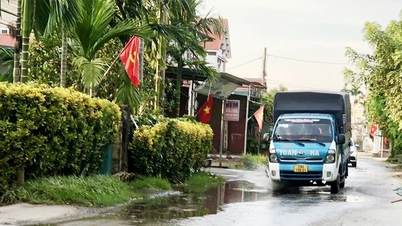





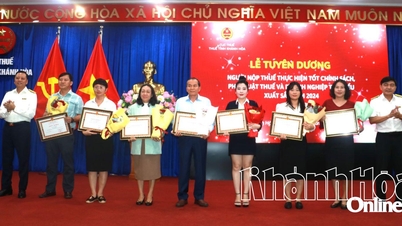








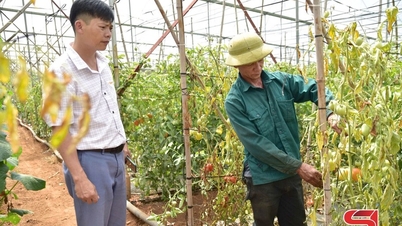




























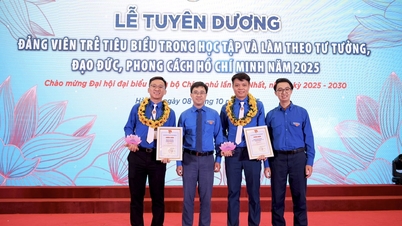










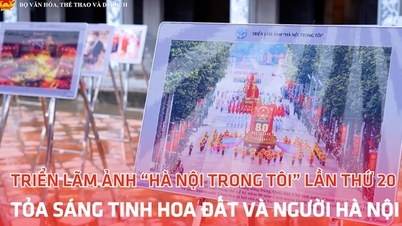




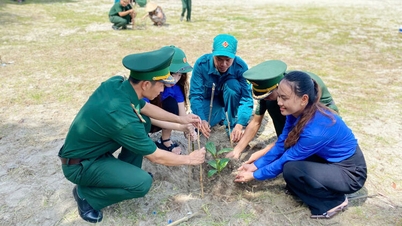



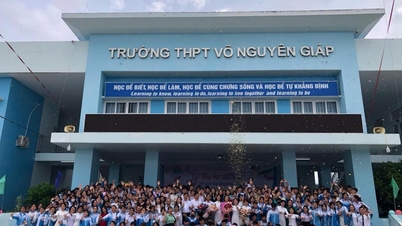















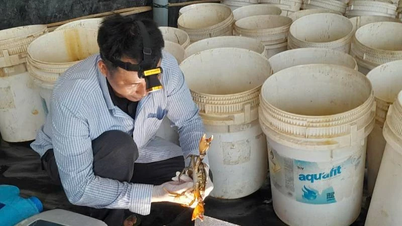


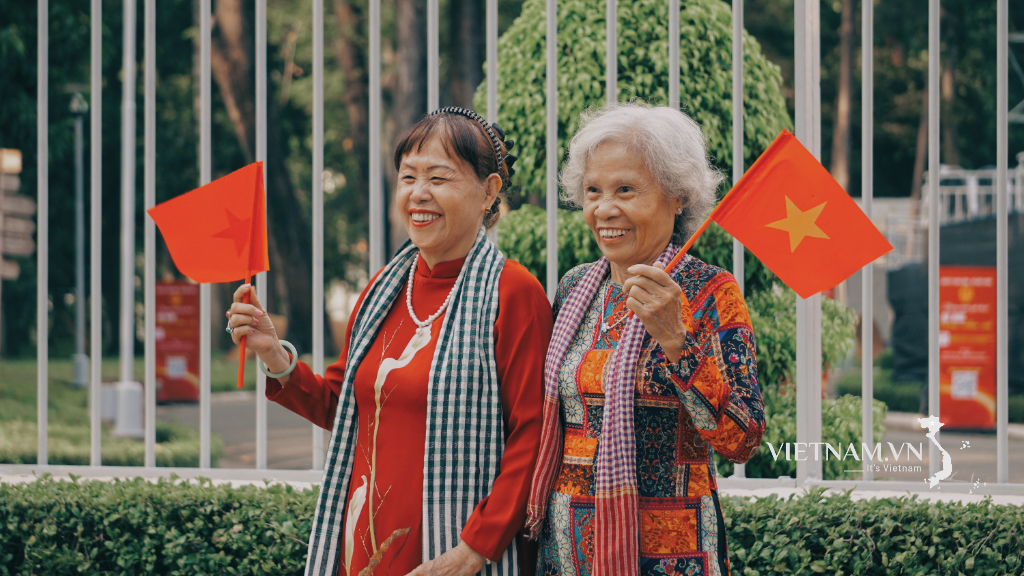


Comment (0)